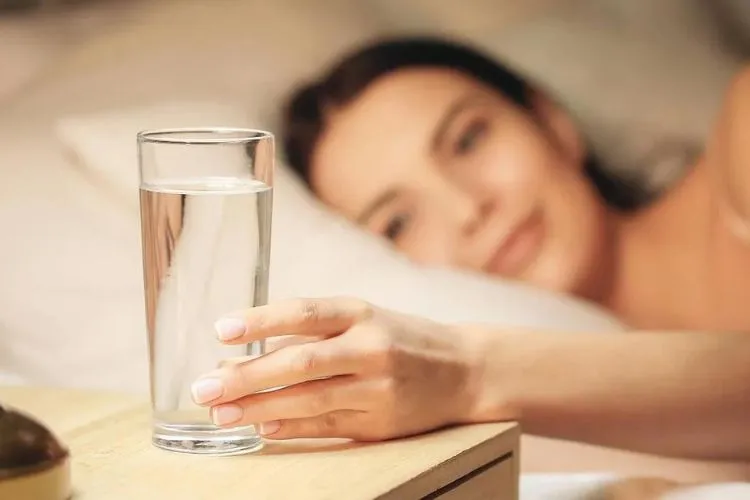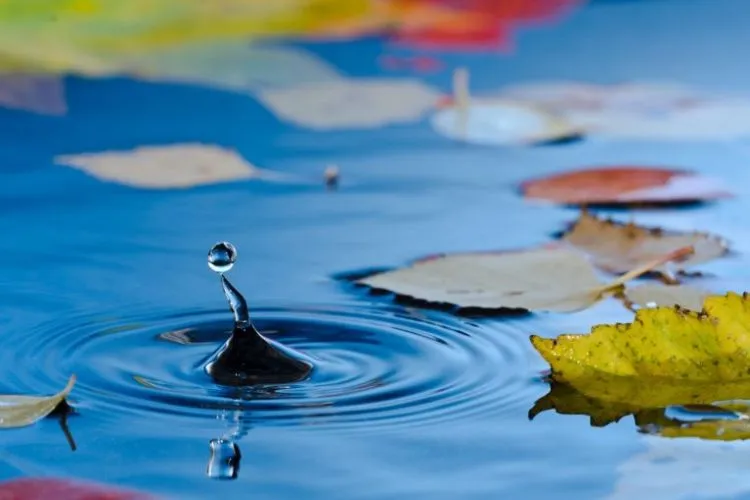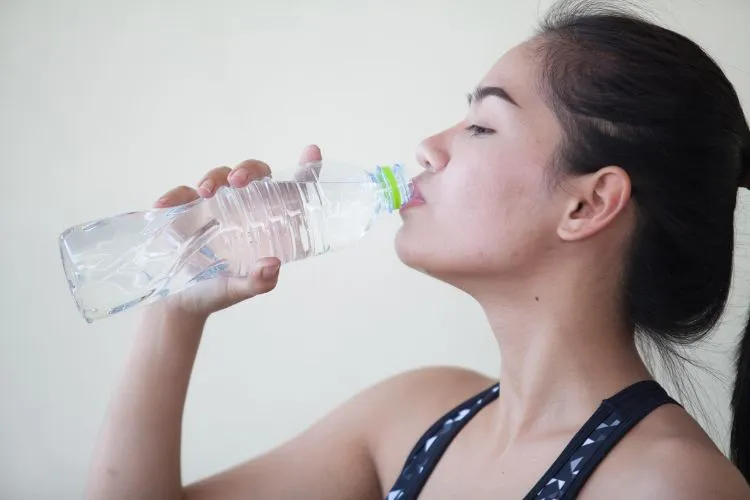Have you ever wondered why a sip of water can feel utterly refreshing and taste noticeably better at night? It isn’t just your imagination playing tricks on you.
So, why does water taste better at night?
There’s a fascinating blend of scientific, physical, and psychological reasons behind this common phenomenon.
Let’s dive into the depths of why water has a superior taste after the sun goes down.

💦 Why Does Water Taste Better at Night?
Tasting water involves a complex process where the taste buds play a central role. These receptors send signals to our brain, helping us identify different nuances of flavors.
At night, our sense of taste can seem enhanced due to a reduction in competing senses. With dim lighting and less noise, our focus on taste becomes sharper.
That’s why water tastes better at night in most cases.
Saliva also influences how we taste food and drink by dissolving the substances for our taste buds to pick up.
During various times of the day, our hydration levels fluctuate, which can alter the sensitivity of our taste buds.
When we are better hydrated, our saliva production is optimal, likely making water taste better.
Our brain’s ability to concentrate on the sensation of drinking water without the distraction of visual and auditory stimuli can make the experience more intense and enjoyable.
💦 Physical and Environmental Factors

Circadian Rhythms
Our circadian rhythms, which regulate our sleep-wake cycles, also impact our physiological functions, including our taste perception.
These natural rhythms might explain why we perceive water as more satisfying at night due to shifts in our body’s hydration needs.
Decreased Distractions and Enhanced Focus
The calm of the evening allows our minds to relax and focus more on the immediate tasks at hand, like enjoying a refreshing glass of water. This undivided attention can make water taste more delightful.
Temperature Impact
The temperature of water can significantly affect its taste. Cooler temperatures tend to hide some of the subtle flavors in water.
At night, people often prefer room temperature water, which might unveil tastes that cooler water during the day masks.
💦 Psychological Factors
Anticipation and Reward
After a long day, the anticipation of the refreshing nature of water can enhance the taste. Our emotional state, including relief and relaxation in the evening, can make the experience of drinking water feel more rewarding.
Memory and Association
Our brains associate certain rituals and habits with pleasure. If drinking water at night becomes a routine, our brain might condition us to find the taste more enjoyable simply because of the positive associations we’ve built around the habit.
💦 Dehydration and Its Effects
Throughout the day, we lose water through normal bodily functions, such as sweating and breathing. By the evening, we might be slightly dehydrated, which increases our thirst.
This heightened sense of thirst can make the first sip of water seem particularly satisfying, enhancing the perceived taste due to our body’s immediate need for rehydration.

💦 Expert Opinions
Nutritionists and scientists suggest that staying well-hydrated throughout the day can help maintain taste sensitivity.
While individual experiences might vary, they agree that physiological and psychological factors contribute to the enhanced taste of water at night.
💦 Practical Tips
Enhancing Your Nighttime Water Experience
To optimize the taste of water, consider using a filtration system to remove any impurities that could affect its flavor profile. Also, paying attention to daytime hydration can help ensure your taste buds are in the best condition to enjoy water fully at night.
💦 The Impact of Mental and Emotional States
The impact of mental and emotional states on our senses, including taste, is profound. At the end of a day, after navigating through stress, work, or personal challenges, our mental and emotional states shift significantly.
This transition often leads to a heightened awareness and sensitivity to our surroundings and experiences, including the act of drinking water.
These states can either amplify the refreshing nature of water, making it taste better, or alternatively, if one is overly stressed or anxious, can dull the senses, affecting the perception of taste.
The relaxation or sense of relief that many associate with the evening can enhance the enjoyment and satisfaction derived from simple pleasures, like savoring a glass of water.
Thus, psychological factors like mood and emotional well-being play critical roles in modulating our sensory experiences, influencing how we perceive and enjoy water at night.
💦 Frequently Asked Questions (FAQs)
Does everyone think water tastes better at night?
Taste is subjective, and individual responses can vary based on personal preferences, health, and hydration levels. However, many people report a heightened taste sensation at night.
Can changing my daytime hydration habits affect how water tastes at night?
Yes, improving hydration throughout the day can ensure your taste buds are functioning optimally, possibly enhancing the taste of water at night as well.
Is it safe to drink a lot of water before bed?
While staying hydrated is essential, drinking excessive amounts of water right before bedtime can disrupt sleep due to the need for bathroom visits. It’s best to balance hydration throughout the day.
How do different water filtration methods affect taste?
Filtration can remove various substances from water, potentially improving its taste. The specific method, such as carbon filters or reverse osmosconsidered, osis, can target different impurities, so results may vary.
Are there scientific studies supporting the idea that water tastes better at night?
Research on circadian rhythms and sensory perception supports the theory that our senses, including taste, can be influenced by the time of day, though direct studies specifically on water taste at night are more limited.
Conclusion:
The combined influence of science, our bodies, and minds explains why water can taste better at night.
From the biological mechanisms that govern taste to the psychological anticipation of a refreshing drink, several factors play a part in this curious phenomenon.
Staying hydrated is crucial for health, and understanding how our perception of taste changes can help us enjoy water, and in turn, aid in meeting our daily hydration needs.

Devon Shorts, a seasoned expert with over a decade of experience in water safety, shares valuable insights on this blog “Aqua Safety Plus”. Trust his expertise to keep your water clean and your family safe.
